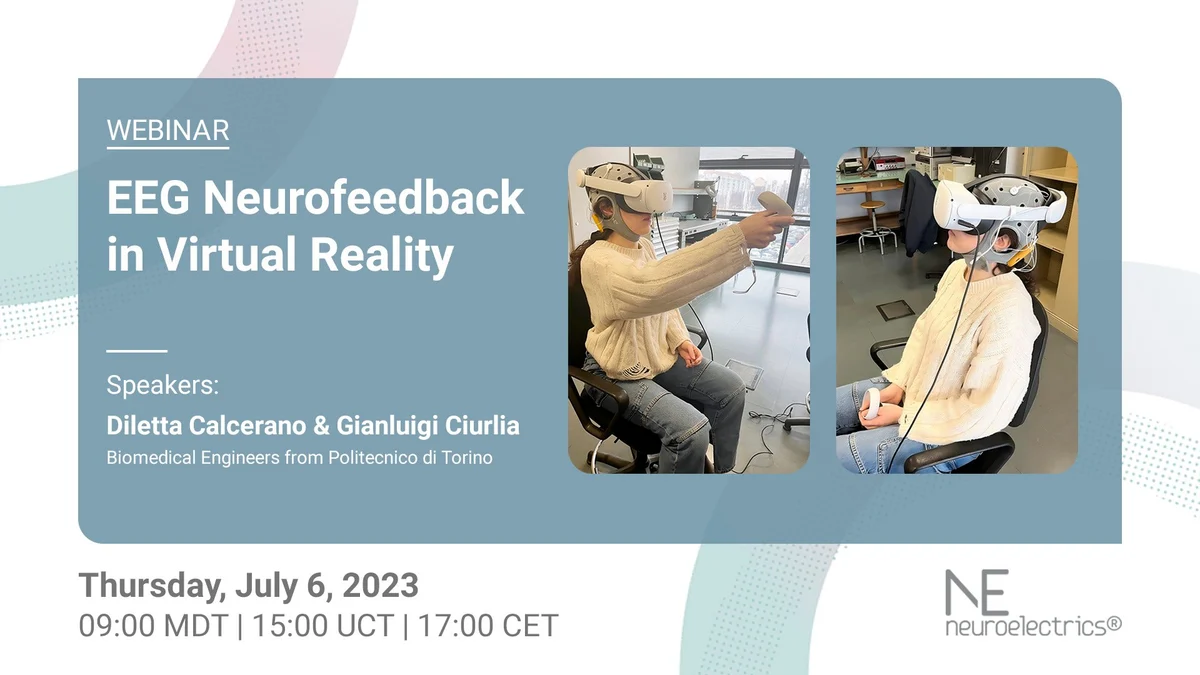Webinar | Neurofeedback in Virtual Reality Naturalistic Scenarios for Enhancing Relaxation: Visual and Auditory Stimulation to Promote Brain Entrainment

6 July, 2023 - 6 July, 2023
Biofeedback is a procedure aimed at increasing a subject's proprioception based on the principle of physiological mirroring. The subject receives visual and/or auditory feedback in real time correlated to one or more physiological parameters acquired. The goal is to find a strategy to modify these parameters and learn from the feedback received to have a greater awareness of his/her own body. In Neurofeedback the subject is provided with real-time information on his/her brain rhythms (EEG) and brain functioning; the brain, thanks to its neuroplasticity, takes note of this information and gradually modulates its activity in response to it. One of the primary advantages of neurofeedback is that it enables individuals to learn how to independently control the electrical activity of their brain. Once the skill of self-regulation is acquired, it becomes instinctive and effortless, but simple and uninteresting designs can demotivate or exhaust the patient during training sessions. The creation of scenarios in virtual reality turns out to gain more interest in the patient, making the treatment more immersive and therefore more engaging. A Single Case Study was conducted to promote subject’s relaxation in the shortest possible time after a stressful situation. A virtual reality neurofeedback system, set in a naturalistic and semi-realistic scenario, was designed and to support the treatment, visual and auditory stimulation was added promoting Brain Entrainment.The presented results certify the effectiveness of the treatment, and the effect of the training is shown to be long-lasting, but further analysis is needed to determine whether the results are related to the combination of Neurofeedback and Brain Entrainment or only to one of these. The project paves the way for a study on subjects with generalized anxiety disorder, post-traumatic stress disorder, and other types of mental diseases
